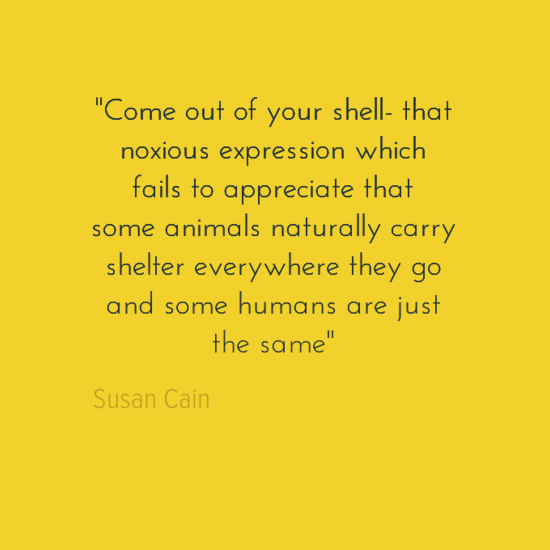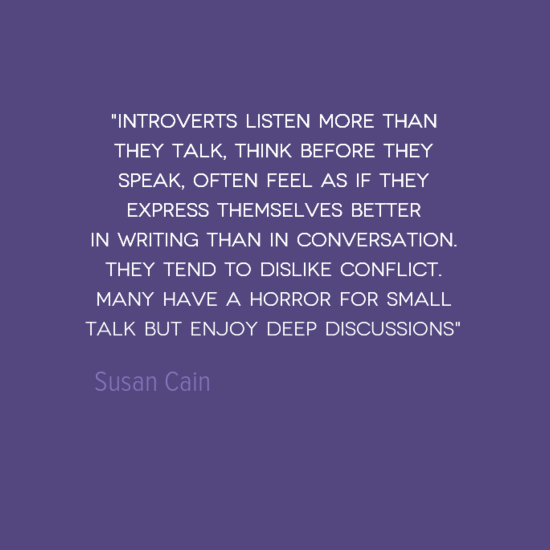Life Lessons: Quiet
In my Wattmag bio, I wrote that one of my goals as in life was helping people with my writing. Writing fanfiction and stories is one way, but I wanted to try something new. So, embracing my new love for writing articles, I decided to do a little series for Wattmag. I'm calling it Life Lessons. I'll be writing about things I've learned about life so far from books, shows etc. The goal? To help someone out there with what I learned.
So, my first article in this series is about the book "Quiet: The Power of Introverts in a World That Can't Stop Talking" and what it taught me. But before I get into how this book helped me, I have to talk about what I was, and still am, going through. This part is very difficult to write. Why? Because I'm talking about things I've never talked about before, not to family or friends.Some wouldn't see growing up as the quiet girl to be a struggle, and honestly, it wasn't at first. As a child, I was dubbed the "quiet" and "shy" girl. I was praised and ridiculed for it, which can have a child confused. My quiet nature caused me to not get into a lot of trouble, I was the definition of goodie goodie two shoes. Grown ups loved seeing a well-behaved child, and I liked not being seen as a bad kid. But there were also the adults who would say "Sheena, you need to break out of your shell, talk more". Being the goodie goodie that I was, I nodded, but in the back of my head, I had no intention of breaking out of my shell, I liked the way I was.

Things started getting more frustrating when I was eleven. Back in the day, in my country, primary school students had to take an exam to determine what secondary school they went to. Each student got to pick five schools they wanted to go to and based on their grades, they got a school on their list. The better your grade, the better the chances of you going to your first pick. I was one of those kids who did well enough to get their first pick, it was one of the top academic schools on my island. I was so excited and pleased with myself, and the people around me were too. But then, in getting those pep talks from people, I realized some only seemed to care about me being outside my parish, which would make me "break out of my shell". Knowing that hurt much more now than it did then. Like, they didn't care that I was going to one of the top schools, they just cared that this might be my chance to actually get...normal. Sadly for them, that didn't happen. I was lucky to find some amazing friends, TeaceFindlay, a writer for this magazine, is one of them. These girls never told me to not be myself, and I love them for it. Because of them, secondary school was the best years of my life, contrary to most people. During those years, the question "Why are you so quiet?" started coming. My answer would always be "I'm just like that" or "I don't know". I wasn't like most teenagers, but I didn't care, I still liked the way I was.
Things got more difficult as I got into the young adult years. Again I wasn't fitting the mold, and I was fine with that, was used to it even. But becoming an adult comes with expectations, and apparently, I wasn't meeting any of them. There was one thing that happened that brought me down to a new low. It could have been the thing that started this whole depression that I still get into sometimes. When I was nineteen or twenty, I told two family members that I wanted to study medicine and be a doctor. One of them literally laughed and said how could I expect to be a doctor when I "don't talk to people". That hit me really hard, I didn't expect that family member to say that about me. The other member saw how hurt I was and told me that I could. But it was too late, the damage was already done. I cried for a really long time. I think that was when it finally hit me. People thought that I was incapable of speech, had low expectations of me. They thought I was weak, naive, stuck up.

It had gotten to the point where I was so upset and frustrated that I started questioning why I was the way I was, started thinking that everyone else was right, that there really was something wrong with me. After having one of my crying spells, I started googling "How not to be shy". I would be reading all these tips that didn't work for me.
"You should go out more"But I don't want to. Where would I go? Why would I go? Am I supposed to just stand there and stare at people?"You should talk to people more"But why? I don't have anything to say to people."You should talk more in front of crowds, like in school or church"But I already do that.
I was getting more and more frustrated, nothing was helping. But then I came across something that changed everything. "Don't mistake being shy for being introverted". I started doing research, I needed to know what being introverted meant.
That's when everything made sense.
I wasn't shy, I was introverted. I wasn't afraid of talking to people, I just didn't want to.
It was during my research that I came across the book Quiet. I've always wanted to buy it but never had the money to. But last year, after getting a little job, I finally had the money to, and I did. That was probably one of the best things I've done for myself.
Quiet: The Power of Introverts in a World That Can't Stop Talking is written by this amazing woman, Susan Cain. She saw how the Extrovert Ideal was getting popular in this world, and saw that it was a disadvantage to introverts, just like herself. She wanted to change things, wanted everyone to see that introversion wasn't bad and that the world needed introverts just as much as they needed extroverts. So, after doing a lot of research, she wrote this book, hoping that others would understand introverts and that introverts would understand themselves.
Reading this book taught me a lot about myself, and I would like to share those things with you. Maybe reading this would help you introverts reading understand yourself too.
1) INTROVERT ≠ SHY
I always saw myself as shy. Why? Because that's what everyone said I was. It was after researching and reading the book did I realize that I wasn't shy and that being shy and introverted were two different things.
Shyness is the fear of socializing and judgment. You may see a person or two close by, and you want to approach them, but you're afraid of what they'll think of you and what they'll say. That's shyness. Introversion is preferring a lowly simulated environment. Like before, you see others around you. They may be talking too much or being too loud and you don't want to be around that. You can talk to them if you want to, but you just prefer not to. That's introversion. A person can be extrovert and still be shy.

I was a shy child and to this day, I still have my shy tendencies. I usually get shy and nervous when I have to talk to a specific person or talk about a specific thing or I have to go in front of a crowd. But other than that, I'm just an introvert. Not talking doesn't mean that I'm afraid to, I just don't have anything to say. If it's the right topic (Grey's Anatomy, Writing), I can talk your ear off.
2) INTROVERTS CAN BE LEADERS
Leaders are expected to be bold, charismatic, loud, outgoing. These words aren't usually used to describe an introvert, and as a result, they aren't expected to be great leaders and get ignored or looked over. But this book has taught me that extrovert can be great leaders, some people think maybe even better than some extroverts. The thing is, introverts lead differently than extroverts, and tend to lead a certain type of some things better than an extrovert can.
Extroverts, with their bold, assertive leadership, works more for passive people. These people have no problem looking to someone to lead them or take responsibility for things. They don't mind being told what to do, and usually, don't question it. But what about the more, assertive, proactive people? An extroverted leader wouldn't work for them, they would feel like their ideas are, and their leader is taking all the glory. An introverted leader, however, would praise their productivity and initiative and would actually listen to their ideas.
I was either overlooked for the leadership position or picked because people thought that it was a good way to make me more outgoing and bold. I'm pretty sure it still happens today. The thing is, I don't like being a leader, I don't ever want to be one. Though, I read somewhere that people like me make great leaders, even though they don't like being leaders. I don't know how true that is, but it's good to know that my introversion doesn't make me incapable of being a leader.
3) BORN THIS WAY
When faced with someone who has an issue with my quietness, I'm always told by them "Just talk more", "Just go out more", "You can change", "Just be different". But what these people fail to realize, and what this book taught me, is that you can't change. Being introverted or extroverted is more than just being quiet or talkative, more than being socially awkward or not. Let me explain. I'm about to get nerdy y'all!
We've all heard of dopamine right? It's a neurotransmitter. According to the quiet revolution website, quietrev.com, dopamine is a "chemical released in the brain that provides the motivation to seek internal rewards like earning money, climbing the social ladder, attracting a mate, or getting selected for a high-profile project". When dopamine is released in the body, people "become more talkative, alert of their surroundings, and motivated to take risks and explore their surroundings". Introverts and extroverts have the same amount of dopamine available in their bodies, the difference is the activity of their dopamine reward system. When extroverts are faced with the rewards mentioned above, like socializing, money etc, their dopamine system gets more active and more excited. They get more energized by these rewards. But for an introvert, their dopamine system isn't as active, and they don't get excited or energized as much by those rewards. That's why socializing isn't as exciting for an introvert as it is for an extrovert.
Here's a scenario, my extroverted friend and I go out to some party (which never happens). We are both excited about hanging out with each other, the food, music, etc. She, though, may be more excited about it than I am. As time goes on, my friend's dopamine system is very active and she's getting more and more energized. She wants to stay longer to experience that rewarding stimuli more. But I, on the other hand, start to get tired. The original buzz from the dopamine is gone and the stimuli my friend is enjoying is beginning to get more and more annoying. I basically get overstimulated.
Now, you've heard about acetylcholine right? Probably not, reading this book and doing research was the first time I ever came across it. Just like dopamine, acetylcholine is a neurotransmitter that is associated with pleasure. The difference between these two is that acetylcholine makes you feel good when you go inward, meaning when you "think deeply, reflect and focus intensely on just one thing for a long period of time". And you might have guessed it, this is the chemical introverts prefer. Like their acetylcholine system is more active than their dopamine one. That is why introverts prefer being alone, reading a book or binge watching their favorite shows (like I just finished doing with Arrow), our acetylcholine system is poppin' then.
Back to the scenario I used before with the party. I am now at the point where I'm overstimulated, and I'll leave the party as soon as I can. When I do get at home, there's an instant relief and I feel much better, maybe even better than I did at the party. That is the acetylcholine at work.
These two chemicals can go on to describe another difference between introverts and extroverts. It is their nervous system. There are two different sides of the nervous system, the sympathetic side, and the parasympathetic side. The sympathetic side deals with action, it is seen as the "fight or flight" system. This side makes us more active, inquisitive etc. Engaging in this side creates a lot of dopamine, so as expected, this is the side extroverts use more. The parasympathetic side is the "rest and digest" side, which deals with conserving energy and hibernation. This is the side introverts use more because is causes the release of more acetylcholine.
One other biological difference was one that was discovered in a study done by the Journal of Neuroscience. It said that introverts have larger and thicker gray matter in their prefrontal cortices in their brain. That is associated with abstract thought and decision making. This also explains why introverts are always in their heads.

I went all sciency on you all to say this. We are different, our bodies and minds are different. We can not change that. We can't "get over" who we are. I can't be an extrovert and an extrovert can't be an introvert. It isn't something that you can get over, it's what you are.
4) THE FREE TRAIT THEORY
Now, after reading the section above, you may be thinking "But there are times when you'll have to be extroverted. What will you do then?" "The world isn't like that, and you'll just be screwed. You're going to have to talk sometimes". My mother once asked me and my sister who is also introverted "So what are you going to do in a job interview? You'll have to talk!". These questions and statements piss me off sometimes because, one, people think I can't speak, and two, that I can't do what I have to, to get what I want. If I had an interview I would answer the questions asked as best as I could, while trying to deal with my nervousness. I could probably be really outgoing too, but the nerves just do too much, and I haven't learned how to deal with that yet. But if I can do that, does that mean I can change self into an extrovert? No, I can't. But you may be wondering, how? I didn't know how to explain this at first, but the book did it for me.
Free Trait Theory. In the book, it says "According to Free Trait Theory, we are born and culturally endowed with certain personality traits - introversion for example - but we can and do act out of character in the service of "core personal projects". In other words, introverts are capable of acting like extroverts for the sake of work they consider important, people they love, or anything they value highly"
The book goes on to explain it by saying "Free Trait Theory explains why an introvert might throw his extroverted wife a surprise party or join the PTA at his daughter's school. It explains how it's possible for an extroverted scientist to behave with reverse in her laboratory, for an agreeable person to act hard-nosed during a business negotiation, and for a cantankerous uncle to treat his niece tenderly when he takes her out for ice cream. As these examples suggests, Free Trait Theory applies in many different contexts, but it's especially relevant for introverts living under the Extrovert Ideal"
What else can I say? This was pretty clear, right? Introverts will step out of their shells and act more extroverted, but only when it's something that is important to THEM.
This was a lot of information that I gave you. Did it make things clear for you introverts reading it? For you extroverts too? I'm hoping it did.
Before I end, I want to share some tips. These tips are for one, introverts so that they have some little guidelines as to how to cope and deal with their introversion. Two, for the extroverts, so they know how to deal and cope with the introverts in their lives. And three, parents, because how a child is treated affects the rest of the lives, and dealing with an introverted child wrong can do a number on them, trust me.
1) Being introverted isn't bad
The first thing we talked about was that being introverted and shy wasn't the same thing. And as we all know, "shy" has a negative connotation to it. So, for the parents and extroverts out there, it's best to not use the word shy when referring to the introverts in your life, especially children. If the introvert is shy, using the word a lot to describe them may make them feel like it's something permanent that they cannot change, and it is something that they can. As for the introverts that aren't shy, using that word may not make them understand who they really are, and because it's seen as negative, they feel that there is something wrong with them.
Introversion isn't something bad, it isn't shameful or wrong, and it's important to not make introverted adults or children feel that it is. Introverts out there, I need you to not feel like that. There's something wrong with you because there isn't. 30 - 50% of the US population are introverts. There are a lot of influential and famous people out there who are introverts. For all you Potterheads out there, J.K Rowling is an introvert. It was that introverted mind that created the world you love. Abraham Lincoln, Barack Obama. These are two great world leaders. Two influential American Presidents. And yes, they too are and were introverts. If these introverts can do the amazing that they did, why can't you?

2) Ease Into It
We learned why introverts are the way they are, how they are biologically different from extroverts. We learned that isn't something they can change or get over. Now, I can give you one big tip to deal with these stimulations and rewards that drain an introvert out. Ease into it.
When introverts go to a social event or gathering of any kind, they tend to stick around the people they went with, or search for a familiar face. That is actually a good tip that we follow unknowingly. You may be worried that the person you might be following around gets annoyed. That's the price they pay for dragging you along. Staying to the side and observing what's going on in the event is also a good tip we follow unknowingly. Others may not like it, but it gives you time to assess what's going on and allows you to make the decision of whether you really want to stay or leave. Cause sometimes, it's not always worth staying. These tips can also be used for young children believe it or not. They too get anxious and nervous when glowing in a new space or being around adults or other children they don't know. When going to an event, you can get there with your kid early, it could help them feel out the environment. And when people do start showing up, it will feel like they're coming into their space and not them going into an unknown place. This approach works for new schools too. Showing them around the school and introducing them to their teacher before school starts, can help a lot. They go into the new school year knowing the important stuff, like where the bathrooms are, and they don't have to wonder around looking for it, which can be nerve wrecking in a new school. Another thing is introducing the child to new people slowly. Meeting too many people at a time can be overwhelming. It is important to remember that your introvert may not just want to deal with whatever social event, and that's cool, you have to accept it.
If a child socializes and talks to new people, it's good to praise them. That may not work for teens or adults, well me at least. I get a bit pissed about it, especially when it's one of those "Oh my god, you talk" statements.
When you realize introvert had fun socializing or going to some event, it's OK to point that out. When we realize we had fun, we'll want to do it again. A good example is me going to church camp. Never wanted to go, and one year, for a reason I don't even know, I decided to go. I had a lot of fun that year, and have been going ever since.
But, it's also important to remember that introverts need to take a break from the activities sometimes. It's important for introverts to know that and the people in their lives. Sit in the corner, hide in the bathroom, step outside, do what you have to to get that acetylcholine flowing.

3) An Introvert's Thing
We learned about the Free Trait Theory, and that anyone can act out of their temperament for something they deem important. Those important things are hobbies, interests, and talents. So introverts, if you want to express yourself more, be a little more social, make new friends, find a club or class that deals with your interests. You'll not only gain more knowledge and gain some skill in your particular talent or hobby, but you'll find people who like the same things you do, and believe it or not, the conversation is easier.
All you fangirls and fanboys out there, why do you think you become quick friends with others in your fandom? You all like the same thing. Isn't it easier to discuss your ship with someone who ships them too compared to someone who doesn't even watch the show?
Parents, observe your kids, see what they like to do, see what they put most of their attention to. When you see what that is, enroll them in a group, a class. Encourage them to join that club in their school. Don't put your child in a team sport just to make them social, get them into it because they actually like the sport. Extroverts, want an introvert to talk to you? Find out what they like and talk about it, or ask questions about it. The introverts might talk your ear off. Though, it's important to note that they may not open up right away. I know that's the case for me. I mention a lot how much I like Grey's Anatomy, but sometimes I find it hard to talk to people about it. I wonder if they'll judge me for getting attached to people who aren't real and knowing way too much about them.
4) Listen
This is more for the parents of introverts and the extroverts with introverts in their lives. Everyone likes knowing that they are heard, but a lot of introverts, adult or child, feel like they aren't because of their quietness. If they talk, and they feel like you aren't listening to what they're saying, it lessens the chances of them ever wanting to talk to you again. So, it's important that they not only know that they are heard, but that you are LISTENING.
5) Stand Up For Yourself
As introverts, we're sometimes seen as weak, stupid or naive. We don't talk a lot, open up easily and people are left to come up with their own interpretations of us. So, it's important for us to stand up for ourselves. And it's important for parents to encourage their introverted child to. Sometimes you have to raise your voice. I'm not the person who'll judge if you beat up a bully to show them you're not the one to mess with. Note, Adults can be bullies too. There are times where standing up for yourself means walking away or just ignoring. Some people do or say things because they know they'll get a rise out of you. Keeping quiet, walking away, ignoring them shows that they have no affect on you. If you have Resting "B" face, like me, you may not have to deal with people messing with you except for the really bold ones.
6) Relationships
Socializing a nerve wrecking experience for introverts, especially with strangers or people they don't know well. And as a result, relationships of all kinds can sometimes be difficult. Introverts may not be as compliant to open up to people and rather quality than quantity when it comes to friends.

So, introverts may have few friends, and it's ok that they do. Introverts may not call or text often, but know that it doesn't mean that they don't care. If they're anything like me, they just fell like they have no reason to bother you with something they see as not important. For the people out there who want to have some kind of relationship with an introvert, the key is to be patient. They'll want to feel you out, see if you're the best kind of friend or significant other for them. Sometimes, though, you may have to accept that they don't to be your friend, or boyfriend or girlfriend. As for the people who already have relationships with introverts, it's important to understand what is and what is not comfortable for them. Some introverts don't like unexpected visits, so please, call them first. They are times where they'll want to be alone, so leave them be. They're just "recharging" themselves, they come to you when they're ready to.
7) Embrace
One big final tip is simple. Embrace your introvert, accept them for who they are. It's sometimes hard to understand, but it's important to embrace them, especially children. If they have the feeling that you don't like their introversion, which people can unintentionally show by forcing them to be extroverted, they'll take that as you not liking or loving them. Trust me, I know what that feels like.
It's very important for introverted parents to not displace their negative feelings about being introverted onto their children. Some introverted adults were made to feel like crap for what they are, to feel like there was something wrong with them when they were kids. Not wanting their kids to be like them, and feel what they felt, they try to get their kids to be more extroverted. What they may not know, is by doing that, they're making their kids feel the same way people made them feel.
So, the thing to do is embrace! When an introvert feels accepted, they're more likely to open up.
This book has done a lot for me. It taught me about myself, made me understand why I was the way I was, did the things I did. With more understanding came more confidence in myself, more knowledge on how to deal with certain situations.
I really think other introverts and extroverts should read Quiet. There was a lot in the book that I didn't get to talk about here, and I think that there may be some things in there you may find interesting. What I know for sure, is that you'll learn a lot.
All the introverts, do you! All you extroverts, do you too! If we just try to understand each other and work with our introverts or extrovert strengths, there's going to be a lot that we can do for this world.
So, what do you all think about this Life Lessons article? Should I write more?
_____________________
So there it is. Hope you like it. Not sure of the pictures will show up, please let me know if they don't.

Bạn đang đọc truyện trên: Truyen247.Pro